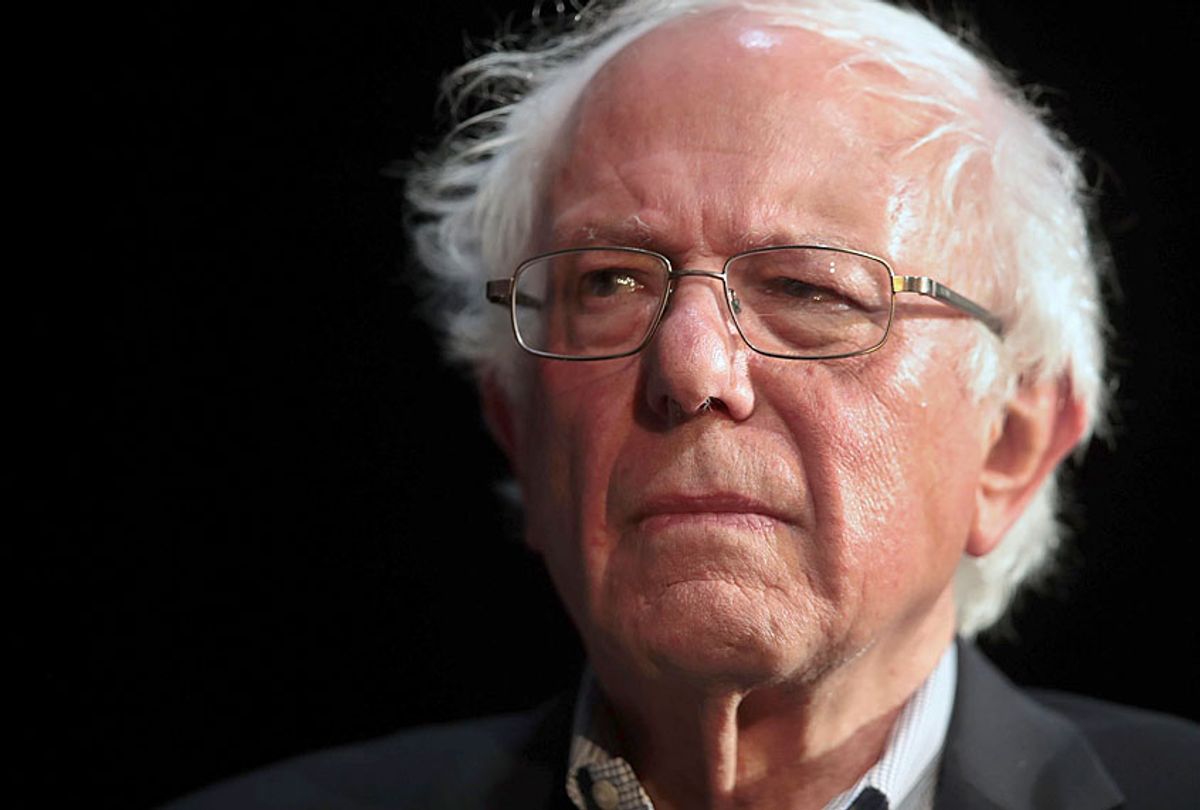While Sen. Bernie Sanders recently said that he doesn't take his frontrunner status "all that seriously," the undeniable fact remains that he's near the front of the Democratic pack. While a few years ago it would have seemed inconceivable for a Jewish septuagenarian who has called himself a democratic socialist to be considered as an even semi-viable presidential candidate, Sanders has been at or near the top of Democratic polls -- behind Joe Biden, who still hasn't made his intentions clear -- since the moment the 2016 election ended.
Yet the reality is that Sanders' views are considerably to the left of any major-party presidential nominee in recent memory. So the question remains: Could he actually become our next president?
One advantage Sanders might have, particularly in a race that is rapidly approaching 20 candidates, is that his base appears uniquely loyal.
Kyle Kondik, managing editor of Sabato’s Crystal Ball, doesn't seem completely convinced. "Some of Sanders’ support is probably a function of name ID, and it may not be solid," he told Salon by email. Sanders does, however, "have a solid base of 20 to 25 percent, which is not nothing in a big field."
Kondik continued, "In a sense, that’s how Donald Trump won in 2016. In a big field, he had a floor of support almost everywhere, and that floor rose as other candidates dropped out."
This doesn't mean that a Sanders victory is guaranteed. If the non-Sanders alternatives are able to unite behind a more moderate candidate — most likely Biden, but perhaps also Sen. Kamala Harris or Beto O'Rourke or Pete Buttigieg -- as the sole "establishment" choice, Sanders' loyal cadre of supporters may not be enough to push him over the top.
Yet a precedent has been set for events to unfold in a way that could lead to Sanders' nomination. If that actually happened, At could he get elected? Could he defeat Donald Trump?
"I think it would be very difficult, to be honest," Will Marshall, president and founder of the Progressive Policy Institute, a center-left think tank, told Salon. "Bernie is sort of like Trump. He has a solid core of support. It's a very impressive achievement. He's stuck with them through this cycle. This time around he's running not as the outsider but as the frontrunner, so it's a different situation for him.
"I do think he got a lot of support [in 2016] that was in protest of the Democratic establishment, perhaps Hillary Clinton personally. The question is whether Bernie as a free-standing proposition is as powerful as Bernie as a place to lodge a protest against the things you don't like about your party. So we'll see.
"But here's the thing," Marshall added. "The election is going to be determined, most likely, in the upper Midwest, in the same battleground states that Donald Trump won last time and shocked Hillary Clinton. That means Pennsylvania, Wisconsin, Ohio, Michigan. You could also throw in Iowa. So does Bernie Sanders expand the map for Democrats in these places? Does he appeal to mainstream voters? And I don't see any evidence of it. I think that's the great challenge for Bernie Sanders and I'm not sure how he surmounts it."
Kondik was more reluctant to draw that conclusion about Sanders' electability, saying he didn't see "sufficient evidence at this point" to tell whether Sanders' more leftist positions would be a huge liability in a general election. "It’s easy to say that certain candidates are too extreme to win. It’s possible that that would be the case with Sanders, and Republicans will make that case. But it’s not guaranteed that the attack will work."
Would anti-Semitism be a factor? "Potentially, but I doubt it," Kondik said. "Sanders does not wear his religion on his sleeve and I suspect that those who do not vote against him will be more motivated by other factors, such as his left-wing views on any number of issues. It is something to watch for, though. Anti-Semitism is a pernicious epidemic ... and Sanders would be the first Jewish presidential nominee from either party."
I'm not trying to argue that Sanders should be our next president, or that he shouldn't. I'm only wondering whether Sanders' ideology, which is strikingly different from that of most recent Democratic candidates, will prove disqualifying. Then again, before 2016, a person with no political or military experience would never have been considered a serious candidate -- and yet our president is a real estate developer and former reality TV star.
In a country that could elect Trump, it is wise not to rule out any candidate based on political precedent. There's a plausible path to nomination and even election for Bernie Sanders. So he has to be regarded as a frontrunner for the Democratic nomination right now, whether he takes it seriously or not.



Shares